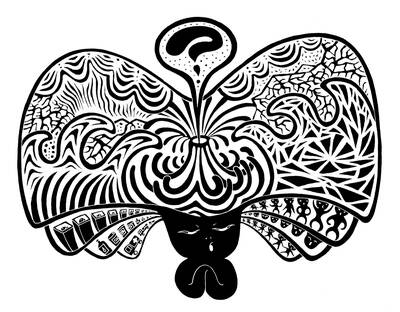Ever since the Democratic Progressive Party (DPP) lost the Dec. 3 local government elections, those who care about Taiwan and pro-localization political parties have called on the DPP to get serious about reform and win back popular support. Until it does, it cannot stand up to the ever-growing threat posed by China.
The party cannot allow this defeat to tear apart localization forces within the nation. Such an outcome would only boost the momentum of the pro-China forces, with serious implications for the next generation. In the space of just a few days following the election, the party leadership was plunged into internal conflict. In fact, the infighting within the party has descended into farce -- which doesn't bode well for the future of Taiwan.
Having suffered the recent election debacle, the DPP did indeed show signs of wanting to change. DPP Chairman Su Tseng-chang (
Following the elections, Chen even mentioned in a public speech the importance of reforming the 18 percent preferential rates enjoyed by retired public servants.
Regrettably, these attempts to revamp the party were but a flash in the pan. In the last few days we saw an even more ludicrous farce unfold when Chen asked Premier Frank Hsieh (
This didn't stop Hsieh and his aides from telling the media that he had accepted Chen's request to remain in office. In view of this, we cannot help but wonder if Hsieh has truly understood the negative impact that the government's failings had on the elections, or if he ever really intended to resign from his post.
The second farce took place when Chen and Vice President Annette Lu (
Moreover, the president should not care too much about who fills the acting chairperson post. Unfortunately, the misunderstanding between Chen and Lu is so serious that it has deteriorated into a long litany of criticisms about each other made through the media.
Voters have taught the DPP a lesson in the recent poll, in the hope that the party can genuinely pursue reform, hold on to the drive toward localization, address its failings and continue to fight for Taiwanese awareness. While conducting an internal review, the DPP should discuss the future development of the party, what ideals the party should uphold, and the policy it wants to follow to appeal to the public. It needs to consider how to ensure and protect the interests of all Taiwanese if it is to live up to their expectations.
However, Hsieh's claims of being asked to stay on as premier and the verbal brawl between Chen and Lu just go to show how DPP heavyweights are scrambling for power, even to the extent that they have allowed themselves a public display of emotions. This has not only shifted the focus away from reform itself, it has also offended the party's supporters.
To be sure, even if the DPP was united, it still might not be able to defeat the KMT, currently led by Taipei Mayor Ma Ying-jeou (馬英九), in the 2008 presidential elections. Given this fact, it is very disappointing to see the president and the vice president engaging in such pointless bickering.
Therefore, these two national leaders must stop their quarreling. The DPP should also review its policies as well as its morals to regain people's confidence. If this farce is allowed to continue, the nation will only plunge into turmoil, with DPP supporters eventually abandoning the party.
Translated by Daniel Cheng

Labubu, an elf-like plush toy with pointy ears and nine serrated teeth, has become a global sensation, worn by celebrities including Rihanna and Dua Lipa. These dolls are sold out in stores from Singapore to London; a human-sized version recently fetched a whopping US$150,000 at an auction in Beijing. With all the social media buzz, it is worth asking if we are witnessing the rise of a new-age collectible, or whether Labubu is a mere fad destined to fade. Investors certainly want to know. Pop Mart International Group Ltd, the Chinese manufacturer behind this trendy toy, has rallied 178 percent
My youngest son attends a university in Taipei. Throughout the past two years, whenever I have brought him his luggage or picked him up for the end of a semester or the start of a break, I have stayed at a hotel near his campus. In doing so, I have noticed a strange phenomenon: The hotel’s TV contained an unusual number of Chinese channels, filled with accents that would make a person feel as if they are in China. It is quite exhausting. A few days ago, while staying in the hotel, I found that of the 50 available TV channels,
There is no such thing as a “silicon shield.” This trope has gained traction in the world of Taiwanese news, likely with the best intentions. Anything that breaks the China-controlled narrative that Taiwan is doomed to be conquered is welcome, but after observing its rise in recent months, I now believe that the “silicon shield” is a myth — one that is ultimately working against Taiwan. The basic silicon shield idea is that the world, particularly the US, would rush to defend Taiwan against a Chinese invasion because they do not want Beijing to seize the nation’s vital and unique chip industry. However,

Life as we know it will probably not come to an end in Japan this weekend, but what if it does? That is the question consuming a disaster-prone country ahead of a widely spread prediction of disaster that one comic book suggests would occur tomorrow. The Future I Saw, a manga by Ryo Tatsuki about her purported ability to see the future in dreams, was first published in 1999. It would have faded into obscurity, but for the mention of a tsunami and the cover that read “Major disaster in March 2011.” Years later, when the most powerful earthquake ever